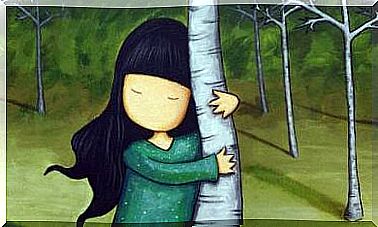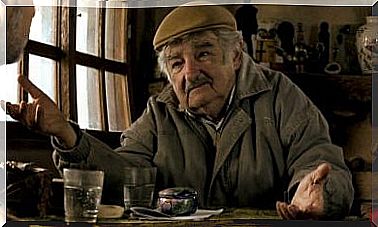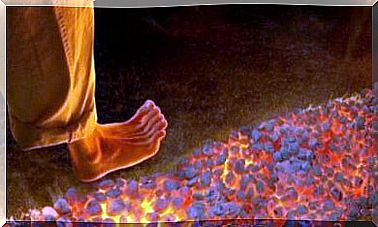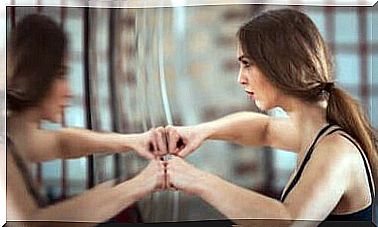Some People Are Quick To Judge But Slow To Self-correct
Some people are very quick to judge others and are rude and ruthless in this. They are led by a narrow perspective and an empty heart, without an ounce of empathy. The seed of egocentrism was planted in their minds. And they also plant this seed in their environment.
Learning from our mistakes, prejudices and misconceptions is an art that is very difficult to acquire. First, it is because it requires the wall of our ego to be broken down. This means that the foundations of one’s identity must be restructured. How can you admit that you were wrong to judge another when you have learned to distrust that which you do not know.
We live in a society where value judgments predominate. Everyone knows how we treat each other these days. Sometimes it doesn’t matter how much effort you put into something. Because there are always people who put a label on you to distinguish yourself in this world of complex flora and fauna. But it doesn’t matter that this world is as chaotic as a jungle. It doesn’t matter how many times people judge you or put false labels on you.
It’s just words, empty deeds, background noise. Because in a complicated world like this, the only thing that has value is authenticity. That’s the one thing you should try to maintain every day and every moment.

We all have a quick judgment sometimes, sometimes with good and sometimes with bad intentions
We all do. Everyone makes value judgments in their daily lives and relationships. But instead of seeing this psychological resource as negative, you have to accept it for what it really is. It is a natural need to evaluate and master the unknown.
Being quick to judge is a survival mechanism. But the way you do it is directly fueled by your personality. Your inveterate prejudices and the flexibility of your thinking determine how you form a judgment. According to a study conducted at Harvard University, people don’t spend more than a few seconds evaluating someone. Our judgments are actually based on two core questions:
- Can I trust this person?
- Does this person deserve my respect?
Harvard psychologists refer to the first question as warmth and the second as competence. When you talk about competence from the perspective of work, it is an essential factor. Can this person guarantee our productivity? Is it a respectful leader? Is he creative and motivating? Can I work with him in a team?

On the other hand, warmth or trust is one of the most important aspects in our lives. It’s actually crucial to our survival. Trust means being able to share, bond and grow. That’s why we judge others based on what we see and how they make us feel. It helps us determine whether we can trust that person or not.
But it is clear that we are not always right…
Bad judgment and the value of self-correction
If being quick to judge is part of our survival, then we need to know how to accept and learn from a bad judgment. But as we already know, this attitude is not really abundant. Every judgment you form is part of your innermost self. Your upbringing, values, experiences and interpretations, however correct or incorrect, determine how you judge.
It takes humility to accept bad judgment as a mistake. Wisdom comes from being able to rebuild frames of mind and thus improve our society with others. But most of all it means change. If you are able to judge others, you must also be able to judge yourself.
Learn how to take control of hurtful judgments
We already know that we make judgments almost instinctively. A first step to avoid hurtful prejudices and stereotypes is to adopt a more contemplative attitude. Before you come to a conclusion about someone or something, try to remember the following:
- Every judgment you make reflects a part of yourself. Ask yourself what caused you to develop these thoughts. Why are you making this judgment or choosing that particular label?
- Don’t associate behaviors with ‘types of people’. Each person is a unique entity. Try not to chain judgment to a person. Because, just like you, he is born free and unique.
- Look for the good in every person. You may not believe it and find it difficult to see at first. You may find someone untrustworthy because of their image. But he may be hiding things you can learn from or a greatness you can imitate. Perhaps he has virtues that can inspire you.
Finally, try to feel good about yourself. For people who are in harmony with themselves, who are content with who they are and with what they have, do not judge others. People who fill their emptiness with the assurance of good self-confidence see no flaws where there are none. They don’t look for victims on whom to project their shortcomings.
